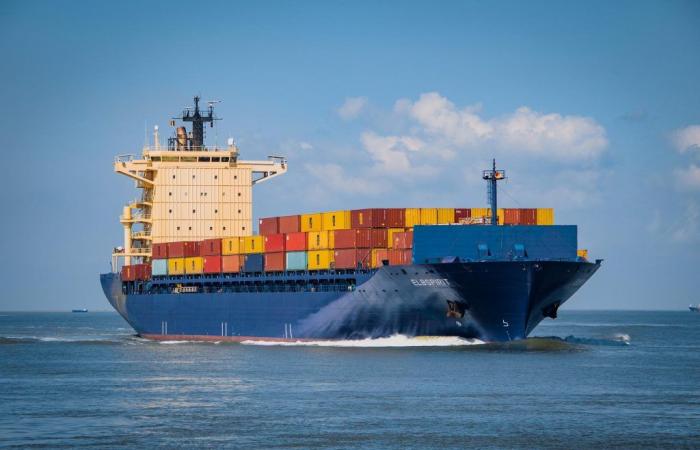Traffic through the Suez Canal has fallen dramatically since December last year, when Iran-backed Houthi fighters launched attacks on ships in the Red Sea. According to figures from the UK’s Office for National Statistics (ONS), the number of ships passing through this key artery has fallen by 66%. This has far-reaching implications for global trade and threatens a new wave of inflation.
Turmoil in the Red Sea and shelling of ships by members of Yemen’s Houthi movement have forced most shipping companies to drastically change courses. Vessels avoid the canal connecting the Mediterranean and the Red Sea, instead taking the longer route around the southern tip of Africa. This forced bypass has serious economic consequences.
Disruption of maritime traffic
Figures from the UK’s Office for National Statistics (ONS) reveal a significant 66% drop in the number of ships sailing through the Suez Canal between last December and early April. “In the first week of April, cargo and tanker volumes passing through the canal were 71% and 61% lower, respectively, than a year ago,” reports the ONS.
The lowest values were recorded between the fifth and tenth weeks of this year. The volume of transport during this period decreased by an average of 23% compared to the same weeks last yearwith tanker vessels decreasing the most.
Higher costs threaten another wave of inflation
The necessity to sail around Africa means extending the voyage by 7 to 14 days. This increases fuel costs, crew wages and insurance prices and threatens to trigger a new wave of inflation. “Spiking fuel, insurance and wage costs may bring another wave of price hikes,” warns the ONS, with many firms already reporting the impact of higher costs.
Case in point are container shippers, who saw their prices more than triple at the start of the year as tensions escalated. Rising transport costs are also reflected in fuel prices.
Escalation in the Persian Gulf
Tensions in the region are further fueled by the ongoing dispute between Iran and Israel. The mutual attacks came to a head this month when Brent crude prices jumped as high as $91 a barrel. The current price around $88 reflects the calm situation over the past week. However, the weak pound against the dollar continues to contribute to higher oil costs for the British.
Info sources: Reddit, https://news.sky.com/story/attacks-on-red-sea-shipping-forces-66-decline-in-suez-canal-traffic-ons-13122044, https://www .bbc.com/news/business-68881429
Preview photo: Pixabay






